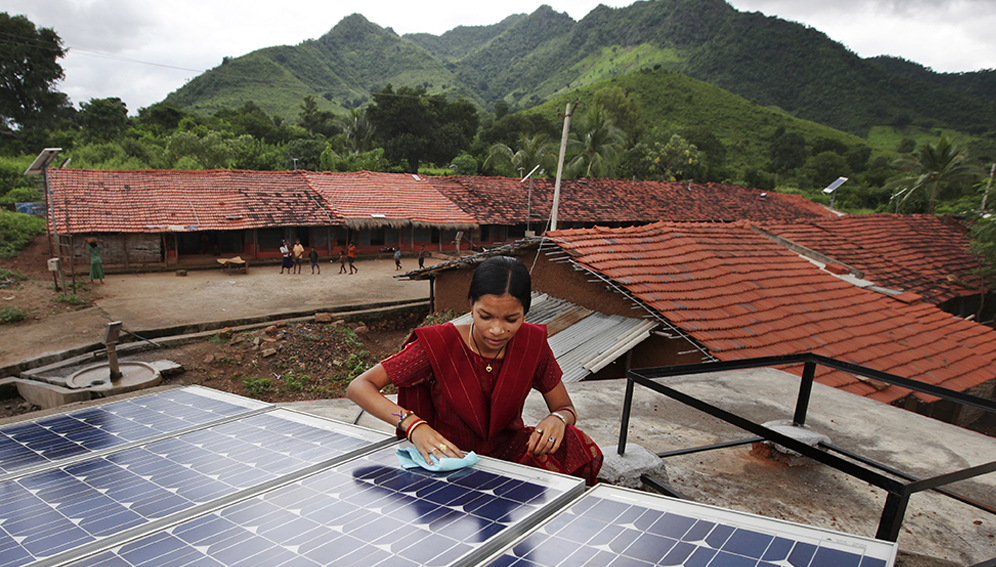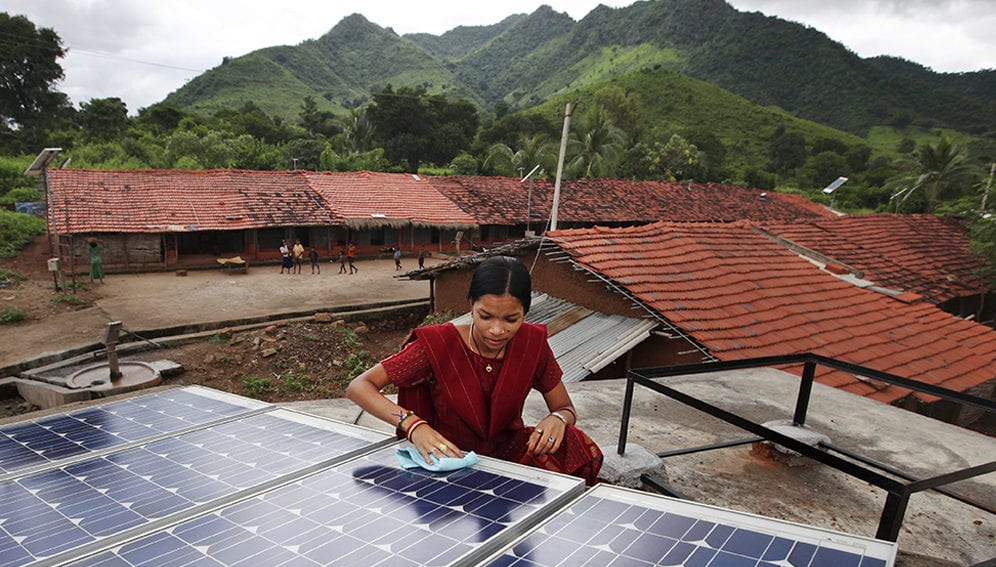Send to a friend
The details you provide on this page will not be used to send unsolicited email, and will not be sold to a 3rd party. See privacy policy.

Photo: Courtesy of Panos
SCROLL TO THE BOTTOM OF THE ARTICLE TO READ THE SUBMISSIONS
On Tuesday 6th November at 2pm (GMT), SciDev.Net hosted the first in a series of online debates examining key issues in science for development. These weekly debates are supported by The Rockefeller Foundation Bellagio Center who are hosting a special thematic residency 5th November – 3rd December 2018. The residency will bring together academics, practitioners and artists whose work is advancing, informing, communicating, or is inspired by science and technology to address social and environmental challenges. The first in this series of debates covered the topic of Climate and Energy.
Panellists
Jeremy oversees Mercy Corps Regional Resilience Hub in Asia supporting projects and teams to ensure programme quality, undertake research and learning, develop partnerships and networks and support growth of resilience programming across Mercy Corps South and South East Asia region. Prior to Mercy Corps he has worked on climate change, renewable energy and environment projects across South/ South East Asia including Bangladesh, India, Indonesia, Kyrgyzstan, Myanmar and Nepal.
Ezzaldeen has recently been involved in a project to help tackle the energy crisis in Gaza by manufacturing wind turbines locally, after imports of the technology were banned by Israel. His previous research has looked into increasing the energy efficiency of buildings.
Carlos is an engineer who has been working in on technologies such as mini-grid and biomass technology for the past 12 years in Palestine, Nepal, Mali, Niger, Nicaragua and Uganda. He has worked in international advocacy and programme management.
Tom leads the ClimateCare Africa Office, the centre of its Project Development, Research and Consultancy work. His team specialises in delivering environmental and social development outcomes and, under Tom’s leadership, ClimateCare has won numerous project development awards. From clean cooking to renewable energy, Tom’s team are world experts at devising and delivering successful projects that create cost effective outcomes and leave a lasting legacy. Tom’s team also provides research and consultancy services to development agencies, governments and NGOs, advising on clean energy, climate change mitigation and sustainable development policy.
Moderator
Millions of people around the world live in communities that lack safe and sustainable energy supplies, either because they are not connected to formal energy grids, or because they live in regions where access to the outside world is blocked. In order to have energy for light, cooking, and communications they often resort to poor substitutes that can harm health and productivity. And in a time where action on climate change is becoming more urgent, clean energy sources are essential. Technologies – including locally produced solutions – are available, but there are barriers such as finance and maintenance needs stand in the way of their wider use.
Question 1 – What changes need to be made at the government level to stimulate uptake of local energy solutions?
Question 2 – What infrastructure is required to nurture innovation at the local level?
Question 3 – What’s needed to make local energy uptake financially sustainable? What can be done to stimulate investment to meet SDG 7?
Question 4 – Often renewable energy systems remain underused. What’s preventing people from using them?
Question 5 – What’s stopping poorer countries from making the transition to clean energy?
Question 6 – How can the international community best support that transition?
Question 7 – What barriers stand in the way of scaling up local energy projects?
Question 8 – Are there success stories of countries or projects that have implemented sustainable models?
Question 9 – Is technical innovation still needed?
This debate was supported by The Rockefeller Foundation Bellagio Center. For nearly 60 years the Bellagio Center has supported individuals working to improve the lives of poor and vulnerable people globally through its conference and residency programmes, and has served as a catalyst for transformative ideas, initiatives, and collaborations.


